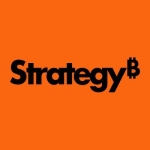What is most valuable?
Ease of use. The power to do anything I want to do. The ability to connect to any data. The ability to merge ("Blend" data from multiple sources). Built in "best practices" in data visualization. Statistical capabilities with the "R" integration.
How has it helped my organization?
I'm a consultant - specializing in Tableau. It allows me to go into a client and be productive immediately. Also, it's ease of use helps me get in the doors, initially - I can walk in, connect to a client's real data, and find insights from that data, in a 30 minute meeting.
What needs improvement?
Everytime I make a request for a new feature, it is, typically, in the next release. I would like to see some additional calculation functions - maybe some statistical one for clients that do not want to have to learn R. As in every product, there are things it does not do, but, I've never had a user need I could not meet.
For how long have I used the solution?
I started with Tableau Desktop in 2005. At that time I had been using Brio Query, Cognos, and some others. Once I saw Tableau, talked to the founders and heard where they were going, I started leaning toward Tableau & I've never looked back!
What was my experience with deployment of the solution?
I've had no deployment issues. With some clients that have "specialized/custom designed environments", it may take a few minutes/hours longer to get everything running, but, Tableau Support has always been there for me.
What do I think about the stability of the solution?
I have had a couple crashes - usually linked back to something stupid I did in my Windows machine. I've done some work with the latest Mac version - have had no issues, in it...
What do I think about the scalability of the solution?
Never. I do a BILLION+ record demo on my notebook, with sub-second response time. As in any other tool/application, proper design is still needed. Tableau affords me the advantage of being able to implement increment aggregate data sets without having IT involvement. THAT is BIG!
How are customer service and technical support?
Customer Service: Excellent - best Customer Service in the industry, from my experience. I've never had a question or issue where I did not feel like I was their top priority...Technical Support: They suffered some growing pains, for a while. But, they seem to have implemented processes and procedures that aid in the support function. Right now, I rate them as excellent.
Which solution did I use previously and why did I switch?
I was a Cognos and a Brio user / developer. Every update became more fragmented and harder to use - always seemed to be from acquisition, not smart & integrated, development. As an experienced BI consultant, I saw that Tableau's direction was where they all should have been going. Switching was the smartest business decision I ever made!
How was the initial setup?
Server and Desktop install the same way. Double-click on the installer program - click "Next" a few times. Done. You can customize the Server installation, along the way. in many cases, that is not needed. The whole process is easy and fast. Desktop installs in a minute. Initial Server installation can take 10 minutes.
What about the implementation team?
I've always done my own Tableau installations and upgrades - too easy to think about paying someone. There are consulting companies, that specialize in Tableau, for businesses that have too few resources, or, might have a complex environment. For the most part, Tableau Support can help with installation issues. Once set up, I advise clients to work with experienced consultants, for a short period of time, to set up a "production process".
What was our ROI?
As an independent consultant, I have no "projects" of my own. Two comments, 1. My entire income from consulting is based on my Tableau knowledge. In that sense, my ROI is an infinite percent. 2. I've seen clients find actionable insights so fast, and with so much bottom line impact, that the cost of implementing an enterprise environment was paid for, up front, from a two week trial copy of Tableau Desktop.
What's my experience with pricing, setup cost, and licensing?
Tableau Desktop is $1999 per named user (Professional version). There are no add-on fees. Mapping, census demographics, R interface, ALL data connectors - are all included... From my perspective, and from my client's perspectives, the pricing model is ideal. You get it ALL for one price - no issues after the fact...
Which other solutions did I evaluate?
Yes & no. No real "project" to review where I was going. Many times, the client dictates what I would be using. As I developed into more a higher level consultant, I was always looking at new products, and updates from existing ones. In the last nine years, no one has come close to unseating Tableau as my choice...
What other advice do I have?
Start NOW, In the free, full offering trial (2 weeks), coupled with the free on-demand training and passionate & active user community, you will be amazed at what you can accomplish. Many find they PAY for it, BEFORE they buy it! If you need help, there is Tableau Support, Tableau Consulting and a bunch of us in the independent world, all ready to assist.
Disclosure: My company does not have a business relationship with this vendor other than being a customer.
















Thank you so much for the responses. Quite helpful in various ways. I sense a favourable leaning towards Tableau, will continue on due diligence keeping all the advice in mind too.
regards
Pete